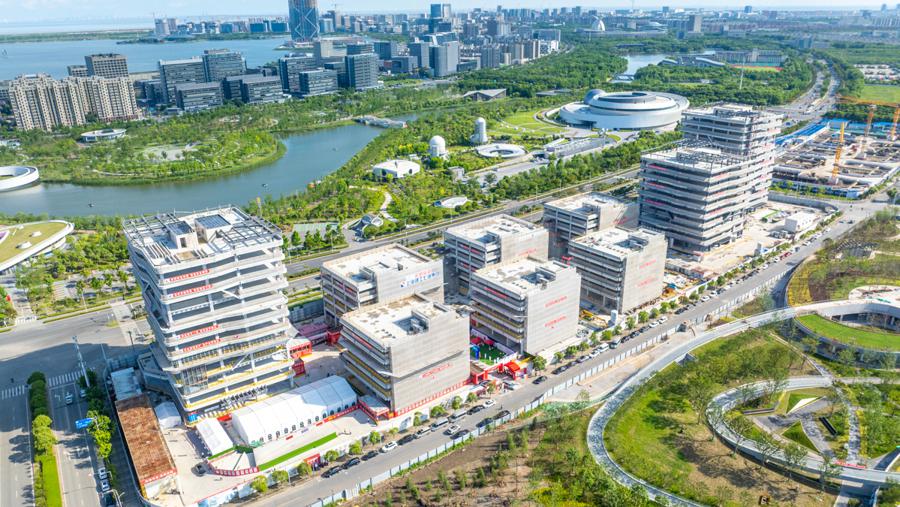Lin-gang's latest step set to foster innovation


Carrying just a backpack, suitcase and laptop, Wang Xiyu moved into his new office in Shanghai's Lin-gang Special Area on Oct 15.
The relocation is expected to cut the operating costs of his one-stop AI legal platform by 30 percent and allow the company to focus more on technology research and development.
"With our team continuously expanding, we could no longer afford the leasing cost of nearly 17,000 yuan ($2,380) per month for 30 square meters in Lujiazui, so we decided to move to Zero Cube in Lin-gang," Wang, the CEO of Shanghai Lawyershome Technology Co Ltd, said.
Wang's company specializes in providing AI-based legal services for micro, small and medium-sized enterprises.
Calling his 11-member team, mostly under 30, a group of "digital nomads" working from different parts of the country, Wang said they finally have a place they can call home.
According to the 27-year-old, the move not only expanded their office space to about 100 square meters, but also provided living space for nine team members — both free of charge.
"This greatly reduces our costs as a startup, allowing us to concentrate on our business," Wang said.
Wang and his team are among several young entrepreneurs benefiting from Lin-gang Special Area's latest initiative called the "super individual 288 program", which is designed to foster innovation and entrepreneurship.
Launched by Lingang Group in August, the program focuses on young entrepreneurs in the era of digitalization and intelligence. It offers rent-free office and residential spaces, along with supportive measures in business development, financing, promotion, logistics and networking.
As the first project under the program, Zero Cube has already attracted more than 110 startup projects and over 500 young talents in its first month, according to Luo Yijun, head of operations at Zero Cube's initial project.
"Startup teams can enjoy up to three years of rent-free office space, entrepreneurship guarantee loans of up to 800,000 yuan, nonrepayable subsidies of up to 500,000 yuan, and a range of support from computing power to financing," said Luo.
"In addition, young entrepreneurs can live in apartments just five minutes away by car, with free shuttle buses connecting Zero Cube to major subway stations of Shanghai," Luo added.
While Zero Cube serves as an early incubation base for startups, the Lingang Makers Hub supports companies in their first year of establishment.
"By offering all-around services including entrepreneurial guidance, resource matching, and up to three years of free incubation, the hub aims to provide comprehensive aid during a company's most fragile stage," said Zhang Zhen, deputy manager of Shanghai Pudong Software Park Huizhi Technology Co Ltd and head of the Lingang Makers Hub.
In its first month, Lingang Makers Hub has already attracted 14 technology innovation companies, including seven AI enterprises, with others focusing on integrated circuits, automotive electronics and the low-altitude economy, according to Zhang.
The Lin-gang Special Area issued its innovation and entrepreneurship plan in May, aiming to ease the burden of high initial costs by offering free office space and apartments for company employees.
In August, Lin-gang reduced the rent for apartments across the area, with 40-square-meter units costing as little as 800 yuan per month, according to Yang Wu, an official with the Lin-gang Special Area Administration.
"The adjustment led to applications tripling in September month-on-month," Yang said, adding that the area plans to expand eligibility for such apartments to all professionals working in Shanghai.
"By allowing more people to experience Lin-gang's affordable lifestyle, we hope more will come to understand, like, and ultimately choose Lin-gang as a place to work and start a business," Yang said.
wang_ying@chinadaily.com.cn




































